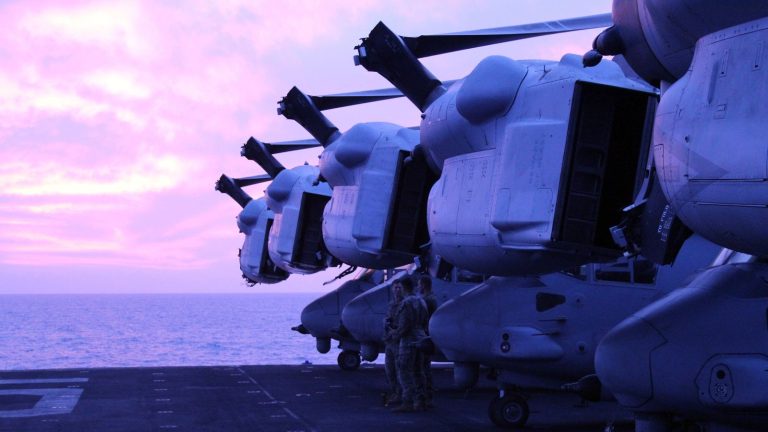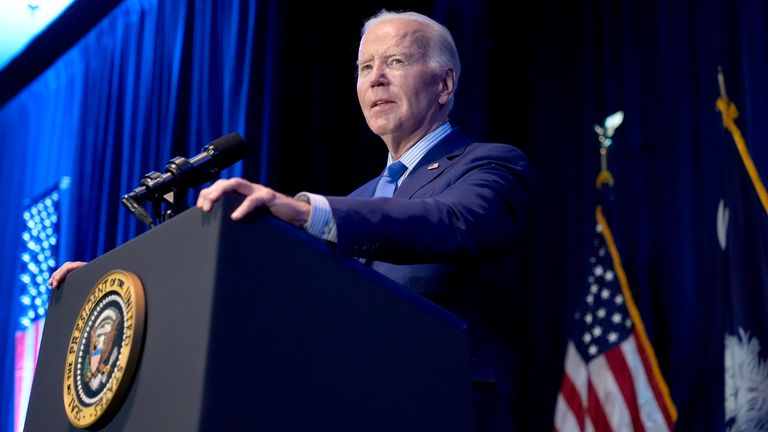The killing of three American soldiers and the wounding of dozens in a drone attack creates a near certainty: that the United States will retaliate with military force.
The more difficult question is whether this response will be limited to “Iranian-backed extremist armed groups operating in Syria and Iraq” that the White House accused of carrying out the massacre, or whether it will expand to include the regime in Tehran that supports it – or both.
Joe Biden It must respond forcefully to deter future threats against the large numbers of US forces operating across it Region.
But this external crisis plays a role Domestic politics also.
Follow the live broadcast: Biden blames “Iranian-backed extremist armed groups” for the drone attack
The president's predecessor and archrival, Donald Trump — who is vying to replace him in this year's election — has already used the drone attack to accuse Biden of weakness.
There is no doubt that Saturday night's drone strike represents a major escalation in a region that has threatened to explode since the Hamas militant group, also backed by Iran, attacked Israel on October 7, sparking the Israeli war in Gaza.
Given the fact that US soldiers were killed, the risk of igniting a broader conflict is arguably even greater than the decision earlier this month by the US and UK to launch airstrikes against Iranian-backed Houthi fighters in Yemen.
In a statement, Biden mourned the loss and injury of the soldiers.
He added that the facts are still being gathered, but “we know that the attack was carried out by Iranian-backed extremist armed groups operating in Syria and Iraq.”
The Supreme Commander added: “We have no doubt that we will hold all those responsible accountable at the time and in the manner we choose.”
The last time tensions between the United States and Iran reached this high level was in 2019 when Trump was in power and chose to expose the nuclear agreement with Tehran.
At one point, the then-president said the US military was “prepared and equipped” to launch a direct strike against Iran in response to the downing of a US reconnaissance drone.
That strike was called off because Trump said he felt such a response would have killed Iranians, and was disproportionate given that the plane Iran attacked had no personnel on board.
Read more:
The killing of American forces poses a major problem for Biden, both at home and abroad
The British-American strikes against the Houthis were a gamble, but they appear to be backfiring
Are we heading towards a third world war? Experts make their judgements
A drone attack against US forces near Jordan's northeastern border with Syria is a completely different matter, although it creates a similar dilemma.
Since the attack was carried out by Iranian proxies and not Iran directly, it would be difficult to justify a direct strike against Tehran unless there is clear evidence of Iranian direction in what happened.
Also weighing in on any US calculations is the need to continue trying to contain violence in the region – which is already at risk of escalating into uncontrollable escalation.
Any direct attack on Iran could lead to retaliatory Iranian missile strikes against American targets in the region or against America’s allies such as Israel.
Many Gulf states will also be incredibly nervous, as they will also likely be in Iran's line of fire.
In contrast, a decision to pursue Iranian-backed groups accused of carrying out a strike may require a much greater use of force than has occurred in the past.
The United States has launched air strikes against Iranian-backed militants in Iraq and Syria on several occasions in response to attacks on its forces in both countries.
But it is clear that this measure has failed to deter the threat so far.


